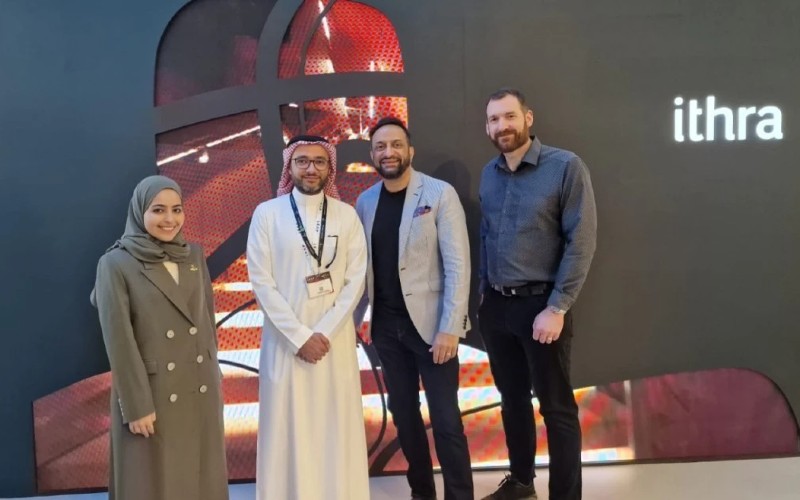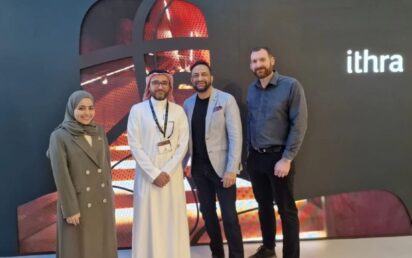The discovery of oil in Saudi Arabia in the 1930s led to a sea change in the country’s prosperity.
Now another transformation is underway as the Kingdom’s Vision 2030 plans seek to diversify its economic, social and cultural wealth away from the ‘black gold’.
Central to the vision is increasing opportunities for young people – 70% of its population is under the age of 35 – and women through investment in skills, innovation and entrepreneurship.
“They found wealth through oil, but now they are investing that through human energy, human power. That’s where their future wealth and prosperity sits,” Mo Isap, CEO of IN4 Group, tells BusinessCloud.
“By opening up for investment, they are inviting the whole world to help bring change to a nation that has previously been somewhat closed off. There is a huge opportunity for the UK in that bilateral relationship and inward investment.”
Global partnership
IN4 Group, which operates innovation hub HOST at MediaCity in Salford, has signed a Memorandum Of Understanding with The King Abdulaziz Centre for World Culture (Ithra by Aramco), part of energy and chemicals giant Saudi Aramco – the second-largest company in the world – to help deliver its innovation and skills programmes around emerging technologies . “The partnership will give Ithra access to IN4’s innovation blueprint,” explains Isap.
IN4 is already established in the Kingdom through its Gametech division. “They visited HOST as part of a mission delegation to London and Manchester particularly looking at immersive technology, VR, XR, Gametech,” says Isap. “They were completely bowled over with what we were doing both on the skills front and the innovation front.”
IN4 has worked closely with Ithra for more than 18 months to support its Creative Solutions programme. Led by IN4’s immersive technology director Simon Benson – the former director of immersive technology at Sony and founder of the PlayStation VR project – the programme delivered masterclasses and skills training in using immersive digital technologies to produce innovative content and experiences.
The Creative Solutions programme showcased successful projects at the LEAP Conference in the capital city of Riyadh earlier this year, which attracted hundreds of high-profile international speakers, including Isap.
IN4 also helps to train the programme leaders themselves. “Young people in Saudi now aspire to progress in tech and entrepreneurship. There is a lot of demand,” says Isap. “We’re helping them build the infrastructure: our role is not just to deliver directly, but to help them build a brilliant ecosystem that nurtures the talent.”
Diversity plan
The aim is to deliver 39,000 jobs in the video games industry, accelerate female empowerment and entrepreneurship, and forge a bridge between the nations’ digital, creative and media sectors. One of the reasons IN4 was chosen to support Ithra’s activities, says Isap, was due to its extensive experience in addressing diversity.
IN4 Group to train over 1,000 people from underrepresented groups in tech
“The programmes we are delivering are very focused on female founders, female entrepreneurs, female creatives – bringing parity to a traditionally patriarchal society which is now opening up,” he adds. “We’re privileged to be in a position where we can make a difference to their nation, but also at the same time, attract investment to ours.”
Around 30 Saudi-based founders and creatives will head to Salford for an international bootcamp at the end of September. “The female founders and entrepreneurs and creatives are coming,” says Isap. “This bilateral exchange means they can even establish their businesses here.”
Talent drain
The popular notion that Saudi has been closed off to the world is a misconception. For example, the King Abdullah University of Science and Technology (KAUST) – established in 2009 – is a graduate research university devoted to finding solutions for some of the most pressing scientific and technological challenges in the world.
More than 120 different nationalities live, work and study on the campus, while KAUST runs a scholarship programme for gifted students which enables them to study at institutions such as Stanford, MIT, Harvard, Oxford and Cambridge. “When they finish their bachelor’s degree, they come back to KAUST, and they work on their masters or PhD here. At any given time, we have probably about 500 students around the world in that scholarship programme,” Jason Roos, chief information officer at KAUST, told me at LEAP.
Isap, who had visited the country for religious pilgrimages prior to the Ithra deal, agrees. “Aramco has been sending its personnel to British and American and European universities since the 60s!
“The academia, the talent, the knowledge in Saudi is immense – but until recently they exported it all out. So a lot of their nationals now live in America, Europe and Britain.
“What they’re now doing is repatriating all of that and saying: ‘We’re now going to do this ourselves, build the intellectual capacity and keep it here – not let it be drained to elsewhere. This is bringing a lot of Saudi talent back into the country – and attracting talent across the Middle East as well.”


